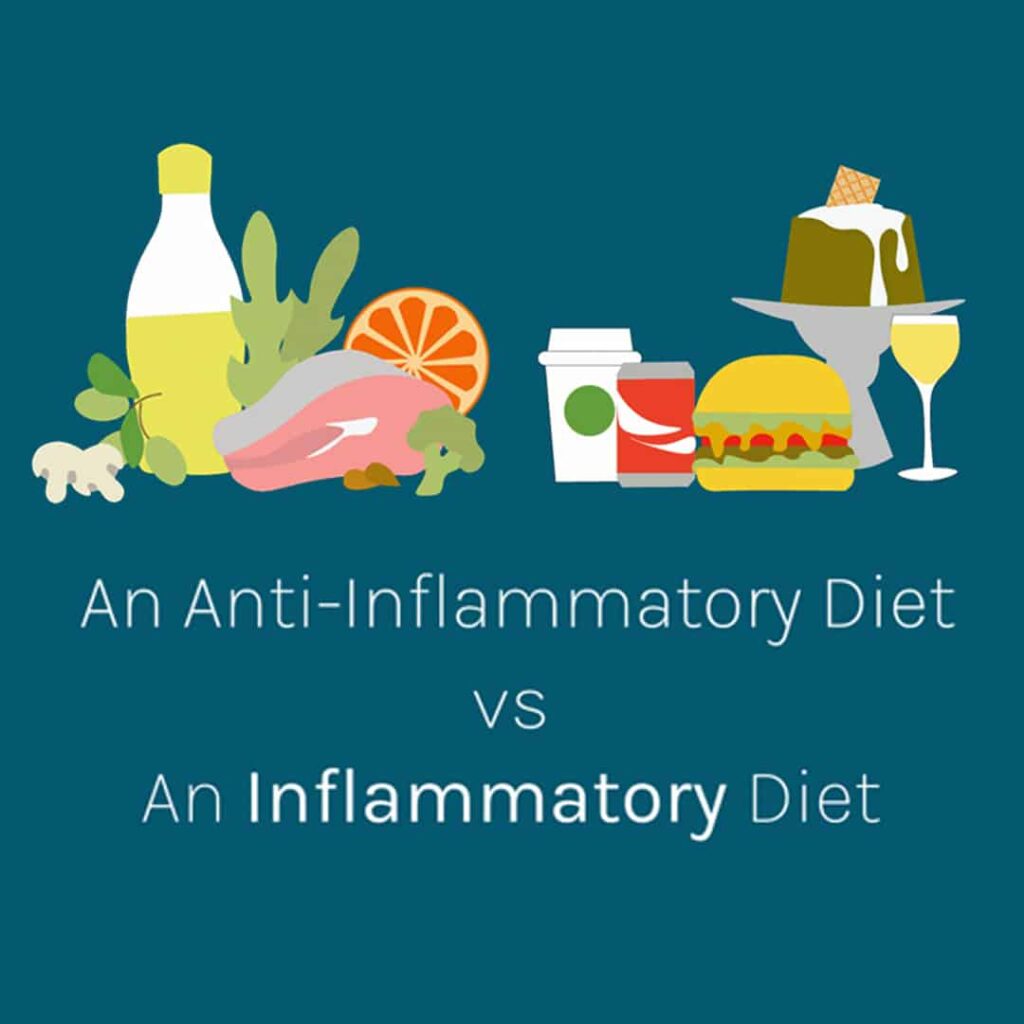What Is an Anti-Inflammatory Diet and How Can It Help Me?

Inflammation is the response of the body’s immune system to an irritant, which may be of chemical or biological origin.
In endometriosis, the body mounts an immune response to the endometrial lesions that develop outside the uterus, which is exacerbated by the estrogen production from the ovaries that occurs during the menstrual cycle. This can lead to further inflammation, which can persist even when estrogen levels are low.
There is no universal diet recommended as the treatment of endometriosis, and excision surgery remains the gold standard option for relief from endometriosis-related pain and inflammation. However, adopting an anti-inflammatory diet could help combat inflammation and help with symptoms on a long-term basis.
Which foods can trigger inflammation?
Eating foods that promote inflammation can cause potential flare-ups and worsen the symptoms of endometriosis. Some of the foods include:
- Processed food
- Alcohol
- Caffeine
- Soda and sweetened beverages
- Dairy products
- Soy
- Grains and gluten
- Fatty foods
- Sweets
- Non-organic food
- Red meat (beef & lamb)
What is an anti-inflammatory diet?
An anti-inflammatory diet, also known as an endo diet, can help reduce inflammation. Such a diet may also help improve mood and overall quality of life.
An anti-inflammatory diet is usually dairy-free, gluten-free, and has low levels of FODMAPs (fermentable oligosaccharides, disaccharides, monosaccharides, and polyols).
Recommended components in a typical endo diet include:
- broccoli
- almonds
- blueberries
- garlic
- avocados
Foods like tomatoes, olive oil, other leafy greens such as spinach and kale, fatty fish including salmon, tuna, sardines, and fresh fruits such as strawberries, oranges, and cherries also make for good anti-inflammatory choices [6].
How much of each food should I eat?
Plant-based foods are a key component of an anti-inflammatory diet, but animal sources of protein can also be included depending on the need. The idea here is to find a good dietary combination that promotes overall wellness. Four to five servings per day of leafy greens and one to two servings of fruits are necessary. Plants grown in organic conditions without residual pesticide are highly recommended.
Cold-pressed oils (two to four servings per day) such as extra virgin olive oil and vegetable oil are rich in omega-3 fatty acids and monounsaturated fats that promote levels of good cholesterol and lower bad cholesterol. Similarly, nuts and seeds (one to two servings per day) such as walnuts and natural peanut butter are also good sources of omega-3 fatty acids.
Fiber is a great anti-inflammatory component. However, if you have gastrointestinal problems you should consume fiber in moderation. Whole grains (three to five servings per day) contain a good amount of fiber along with B-vitamins that reduce blood sugar-level spikes known to promote inflammation.
While maintaining the average daily servings of the above foods, you should avoid or limit your consumption of potentially inflammatory foods such as seafood, lean meat, eggs, legumes, red meat, alcohol, caffeine, and sweets to just a few servings per week.
You should supplement these dietary constituents with a good water intake of at least 64 ounces daily.
Always follow the advice of a nutrition expert before embarking on any dietary changes.
Can an anti-inflammatory diet actually be beneficial?
There are still no clear-cut recommendations for exact dietary changes that can reduce the symptoms of endometriosis. However, several studies have confirmed that diet can have an influence on the progression of endometriosis. For example, research has shown that omega-3 fatty acids can slow the growth of endometrial lesions and reduce pain and inflammation in women with stage 3 and stage 4 endometriosis.
A recent Swedish study in 12 women with endometriosis, ages 28 to 44 confirmed that dietary and lifestyle changes helped reduce the symptoms of the disease and improve overall well-being. The primary dietary changes involved decreasing gluten and dairy consumption and adding more vegetables to the diet.
Get a Second Opinion
Our endometriosis specialists are dedicated to providing patients with expert care. Whether you have been diagnosed or are looking to find a doctor, they are ready to help.Our office is located on 872 Fifth Avenue New York, NY 10065.
You may call us at (646) 960-3080 or have your case reviewed by clicking here.